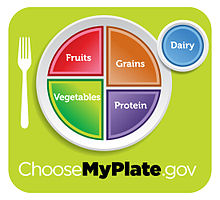
By Dr. Lauri O. Byerley
Faculty Member, Sports and Health Sciences at American Public University
Food education starts at a young age. We learn what is safe to eat and what is pleasing to our palate. We learn to navigate the daily barrage of food advertisements, the assortment of tantalizing smells that entice us at fast food restaurants, and the abundance of food purveyors that want our money.
We must also learn that we need a variety of different types of foods and that what we eat is important for our health. Nutrition matters. After all, we are what we eat.
Science has shown the importance of selecting the right foods. Food can affect many aspects of our life, from mood to how long we live. Replacing a few things in your diet can make a big impact on your quality of life.
- Eating more whole fruits and vegetables can reduce your risk of cancer?
- Using polyunsaturated fats like olive oil instead of animal fat can reduce your risk of heart disease.
- Reducing your intake of salt can lower your blood pressure.
MyPlate is a great online source to help you learn about making healthy decisions about what you eat.
Our society is drawn to calorie dense, nutrient poor foods such as sweetened drinks, deep fried fatty foods, and high-fat, sugar-laden desserts. People are eating too many of these types of foods. This is evident in our expanding waist lines. The number of overweight and obese people is increasing.
Look around your community and at your eating choices and ask yourself these questions:
- What types of foods do local restaurants sell?
- How often do I eat at home?
- How often do I eat out?
- What size are my meal portions?
- What type of food is sold in grocery stores?
Eating fewer meals at restaurants and eating more meals prepared at home is one way to improve healthy food choices. When you shop at the grocery store, you should select foods from the outer perimeter where the less processed foods are found. When you eat at restaurants, choose baked or broiled foods and take half the serving home for a meal the next day.
According to the latest MyPlate recommendations, more than half your plate should be plant based foods like fruit, vegetables, and whole grains. If you’re concerned about portion sizes grab a smaller plate. If your eyes are larger than your stomach control the urge by limiting the surface area available for food.
Obviously, many people are not making wise food choices. Obesity and related medical conditions are on the rise. The next generation may be the first to have a shorter lifespan than their parents. Educating people leads to better choices1. This includes better food choices, which leads to better nutrition and better health. This is why we need nutrition education!
References:
- Egerter, S. (2009, September). Education matters for health. Issue Brief 6. Retrieved from http://www.commissiononhealth.org
About the Author:
Dr. Lauri O. Byerley, Ph.D., LDN is a nutrition scientist, nutrition educator and Registered Dietitian. Her research expertise is diet and cancer, and sports nutrition. She has more than 30 peer-reviewed, original research articles in these areas. She has several decades experience teaching a variety of nutrition courses at the college level.
Comments are closed.